RAM Elements 2023 (23.00.01.095) Win x64

Free Download RAM Elements 2023 (23.00.01.095) | 2.1 Gb
Languages Supported: English, Español
The Structural Products development team is pleased to announce the availability of RAM Elements 2023 (23.00.01.095). This solution delivers the industry’s most productive and easy-to-use engineering analysis and design toolkit.
Owner:Bentley Systems, Inc.
Product Name:RAM Elements
Version:2023 (23.00.01.095)
Supported Architectures:x64
Website Home Page :www.bentley.com
Languages Supported:multilanguage
System Requirements:Windows *
Size:2.1 Gb
1.Shell Stiffness Adjustment Factors:A new spreadsheed has been added for Shells, where it is possible to define the stiffness factors for in-plane and out-of-plane DOFs. The spreadsheet is divided in two sections: the left section is used to define releases, which represent a stiffness factor of zero, and the right section used to define the factors as required.
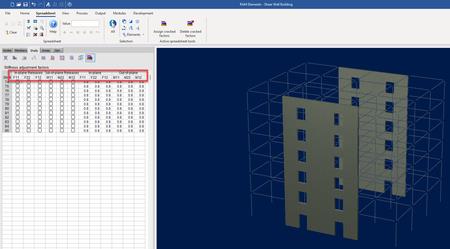
Figure 1. Shell stiffness adjustment factors and releases spreadsheet.
A new tool has been added to simplify the definition of cracked concrete factors for shells. It is possible to define two factors: one for in-plane stiffness and another for out-of-plane stiffness , with a default value of 0.8.

Figure 2. Assign cracked concrete factor tool.
This enhancement has also been included in the Concrete Wall design module. In the Advanced options, it is now possible to define the cracked factors for in-plane and out-of-plane stiffness

Figure 3. Cracked factors in the Concrete Wall module advanced options.
2.Display Analysis Results for Maximum and Minimum Values:It is now possible to select the Min and Max options to display the maximum or minimum analysis results (member forces and reactions) along the controlling load condition.
The Max and Min buttons are located to the right of the Analysis group on the View tab.

Figure 4. Min and Max tools.
These options are enabled when member forces or reactions are selected to be displayed after analysis. The Max and Min options display the analysis results for the selected element with along with the corresponding load condition.
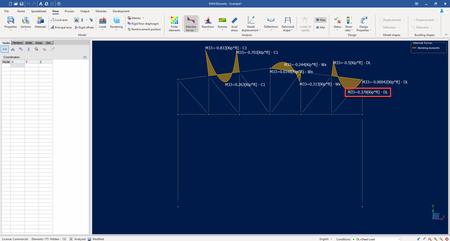
Figure 5. Max option displayed for member forces.
3.Retaining Wall Module Enhancement for Stability Results Display:The Retaining Wall module now displays stability results in the module graphic area. These results include the sliding, overturning and bearing capacity checks which are automatically updated when a wall dimension or parameter affecting the stability change. This eliminates the need to repeatedly check this results in the report.
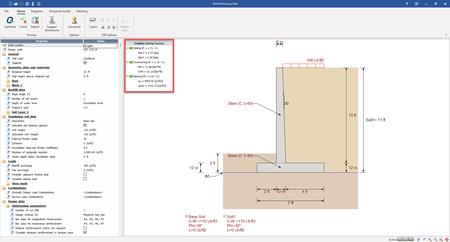
Figure 6. Stability results displayed in the Retaining Wall module graphic area.
4.Footing Design Module Enhancement to Include Pedestal Self-weight:Previously, the pedestal weight was not considered, requiring users to either include it as a load or physically model the pedestals in RAM Elements. The pedestal weight is often used to counteract the uplift conditions. This new option is available in the module, eliminating the need for other methods to account for it.
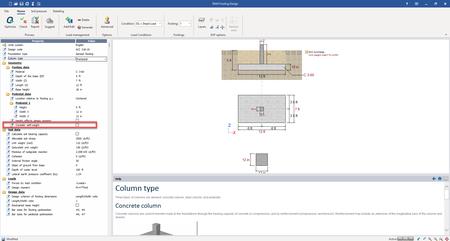
Figure 7. Pedestal self-weight option in the Footing Design module.
Resolved Issues:
– Shell internal stresses glitch when displaying "Smooth" option. This was causing the internal shell stresses to change largely when using this option to display values in graphical area. This has been fixed and the smooth values are now determined and displayed properly.
– Member stresses displayed in the graphical area using the Stress tool was not showing correct results for angles and double angle sections as stresses were calculated using local properties instead or principal. This is fixed now, and results match principal axes stresses.
– Tilt-Up Wall module simplified analysis was not considering the loads from seismic weight factor which was causing different results between the simplified analysis and FEM. This is fixed now, and the simplified option now provides closer results to the FEM option.
– Retaining Wall module for ACI 318-19 shear strength was being calculated with equation c from Table 22.5.5.1. As the equation depends on the longitudinal reinforcement, for plain concrete, this equation was not giving correct results. Now when the heel and/or toe are unreinforced (plain), the shear strength Vc is calculated using Table 14.5.5.1.
– AS 4100 steel member design was not determining properly if the member had transversal loads. The method to determine it has been enhanced to consider the different number of design stations.
– NDS 2018 wood design for user defined materials was swapping the values for design between Fcp (compression strength perpendicular to grain) and Fc (compression strength parallel to grain).
– NDS 2018 wood design was not considering the Cr factor for the adjusted bending design value as a conservative value of 1.0 was being considered. This is fixed now and the correct Cr value is taken into account for bending calculations.


iTwin Analytical Synchronizer 2023 (23.01.01.056) – Release Date: 1st September 2023
REVIT 2024
This update of iTwin Analytical Synchronizer incorporates the latest plugin to support REVIT 2024.
RAM Concept 2023
– Reduced wait times of Cloud workflow operations (Push/Pull). Typical models experience can now be processed approximately 10x faster. Larger, complicated models with more intricate tendon layouts are between 20x to 25x faster to process.
– Improved tendon graphics for iTwins originating from RAM Concept. Including the display of tendon anchors.
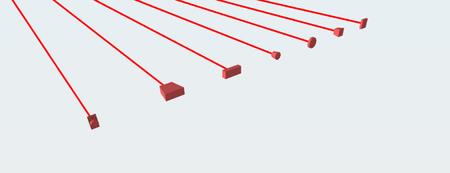
– It is now more intuitive to visualize the interplay between tendons, anchors and surrounding concrete elements in Analytical Design Review
Security, Maintenance and Stability fixes
This update also includes many security and stability fixes. As with general practice, API releases are supported for at least three years. Currently ISM API 8, 8.1, and 9.1 are supported.
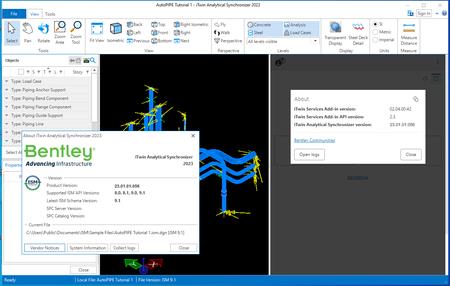
RAM Elementsis a unique combination of a 3D finite element analysis/design program with structural engineering toolkit modules for every day engineering design needs. This program provides unequaled flexibility for the design and analysis of different types of 2D or 3D structures containing linear members and shell elements. The types of analysis available are: First order (Linear Analysis), Second order (P-Delta Analysis) and Dynamic (Seismic Analysis). In addition, RAM Elements is also capable of designing hot-rolled or cold-formed steel members, wood (sawn lumber and glulam) and reinforced concrete members using the AISC 360-05 ASD, AISC 360-05 LRFD, AISC 360-10 ASD, AISC 360-10 LRFD, AISC 360-16 ASD, AISC 360-16 LRFD, AISC 341-05, AISC 341-10, AISC 341-16, BS 5950-00, AISI 01 ASD, AISI 01 LRFD, AISI 07 ASD, AISI 07 LFRD, AISI 2012 ASD, AISI 2012 LFRD, AISI 2016 ASD, AISI 2016 LFRD, AS 4100-98, CSA S16-09, NDS 05 ASD, NDS 05 LRFD, ACI 318-05, ACI 318-08, ACI 318-11, ACI 318-14 and BS8110-97 codes respectively. The program includes special modules for designing spread footings, combined footings, reinforced concrete columns, retaining walls, concrete walls, tilt-up walls, masonry walls, continuous beams and trusses. Additionally, RAM Elements has links with RAM Connection, a revolutionary tool that allows the fast design of steel connections inside or outside RAM Elements, STAAD.Pro, the RAM Structural System and ProSteel (SDNF).
Performing the Analysis in RAM Elements
Bentley Systems, Inc.is the global leader dedicated to providing architects, engineers, constructors, and owner-operators with comprehensive architecture and engineering software solutions for sustaining infrastructure. Founded in 1984, Bentley has nearly 3,000 colleagues in more than 45 countries, $500 million in annual revenues, and, since 2001, has invested more than $1 billion in research, development, and acquisitions.

DONWLOAD FROM RAPIDGATOR–>Click Link PeepLink Below Here Contains Rapidgator
http://peeplink.in/9294b79fbdfdDOWNLOAD FROM NITROFLARE
oveur.setup.rar